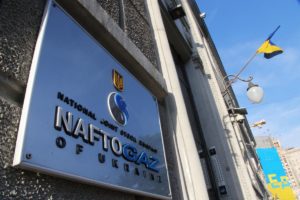
Kernel Holding S.A. (Luxembourg), the holding company of Ukraine’s Kernel agricultural and industrial group, plans to place $300-350 million eurobonds (loan participation notes, LPN), a source in banking circles has told Interfax-Ukraine.
The company intends to hold a conference call with investors on October 1, and meetings in London and New York on October 2. The organizers of the transaction are JP Morgan and ING.
Kernel plans to place either eurobonds with a maturity of five years and a call option after three years, or seven-year eurobonds with a call option after four years.
Kernel is the world’s largest producer and exporter of sunflower oil, the leading producer and supplier of agricultural goods from the Black Sea region to the world markets.
The Finance Ministry of Ukraine on September 25 repaid the fourth coupon on eurobonds with maturity until 2032, the agency has told Interfax-Ukraine.
According to the Ministry of Finance, the total payment amounted to $110.625 million.
As reported, Ukraine in September 2017 placed 15-year eurobonds worth $3 billion, including $1.682 billion for the exchange or redemption of eurobonds maturing in 2019 and 2020, which were issued as part of debt restructuring in 2015, and payment of accrued interest on them.
New eurobonds have an interest rate of 7.375% per annum. Coupon payment is carried out once every six months on March 25 and September 25.
Their repayment is scheduled in equal parts in the amount of 25% of the principal amount on March 25 and September 25, 2031, on March 25 and September 25, 2032.

JSC Ukrzaliznytsia (Kyiv) has made another payment on eurobonds in the amount of $150 million, head of the company Yevhen Kravtsov said on his Facebook page. He noted that in 2019 the company already paid off 60% of the principal amount ($300 million) on eurobonds raised in 2013. Ukrzaliznytsia intends to repay the remaining $200 million in the next two years.
“This is the second payment this year. We are paying on schedule,” Kravtsov added.
As reported, in March 2019 Ukrzaliznytsia repaid the first part of its $150 million eurobonds and paid coupon income on them, receiving funds for these purposes at Oschadbank and the State Agency of Ukraine for Infrastructure Projects.

The European Bank for Reconstruction and Development (EBRD) has acquired one-fifth (for EUR 120 million) of five-year eurobonds issued by Naftogaz in the amount of EUR 600 million, the bank has said.
“The eurobond proceeds are issued for general corporate purposes including the financing of gas purchases. The bank’s financing will be used exclusively for gas purchases. The transaction will contribute to Ukraine’s energy security, ensuring procurement of natural gas for the upcoming 2019/2020 winter heating season in the country,” the bank said on its website.
As reported, on July 12 Naftogaz Ukrainy placed two tranches of eurobonds denominated in euros and U.S. dollars: EUR 600 million for five years at 7.125% and $335 million at 7.375% per annum for three years. The anchor investors of the issue were the EBRD and a number of U.S. investors. The initial benchmark yield of dollar eurobonds was about 7.75%, eurobonds in euros about 7.5%.
Earlier, Naftogaz announced the need to urgently raise funds for the accumulation of increased volume of gas in storage facilities for winter – 20 billion cubic meters to be ready for a possible termination of transit by Gazprom from January 1, 2020 and strengthen its position in negotiations with the Russian gas monopoly.

The updated macro-forecast of the National Bank of Ukraine (NBU) assumes receiving $2 billion from the International Monetary Fund (IMF) under the Extended Fund Facility, as well as the issue of eurobonds worth $1 billion, deputy governor of the NBU Dmytro Sologub has said at a press conference in Kyiv.
“We expect that in the fourth quarter the new program is likely to start with the IMF, and Ukraine will receive $2 billion. And we also expect $2 billion in each of the next years as part of the new structural financing program,” he said.
Sologub stressed that such an assessment is an expert commentary. According to him, if the funds arrive a little earlier or a little later, it will not have a significant impact on other macroeconomic parameters, except for international reserves.
The banker also estimated, based on the example of other countries and the size of Ukraine’s quota in the IMF, that the size of the new program could be in the range of $5-10 billion for a period of 36 to 48 months.
“We have no insight, this is our expert assessment,” he said.
Sologub also said that the National Bank laid down in its forecast another entry of Ukraine to foreign markets with eurobonds in the amount of about $1 billion as its expert assessment.

Ukraine has announced the pricing of new eurobonds issued in euros in the amount of EUR 1 billion with maturity on June 20, 2026, the demand stood at EUR 6 billion. “The notes will bear interest at the rate of 6.75% per annum,” the Ministry of Finance said in a statement on its website. “The new issue is expected to be rated “B-” by Standard & Poor’s and “B-” by Fitch,” the report said.
“Settlement of the new issue is expected to take place on June 20, 2019,” the ministry said.
“The proceeds of the notes will be used for general budgetary purposes,” the document reads.